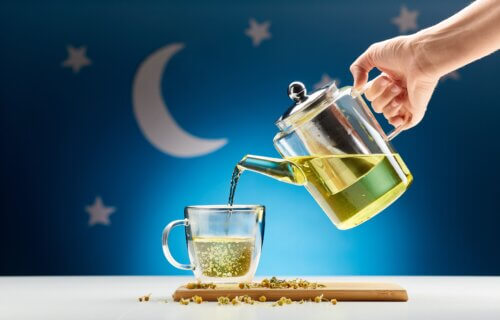Ahh, sleep… a chance to rest our bodies and minds. But unfortunately, it doesn’t always come easy, especially after a busy day. Making our brains calm down enough to fall asleep or stay asleep can be hard. Plus, our bodies can be fidgety or tense, too. Solution? Make a cup of tea and get ready to catch some z’s! The best teas for sleep are not cure-alls, but they may make drifting off to dreamland a little easier.
How important is a good night’s rest to you? Enough that you’d cut off internet access for a year? A new survey reveals that almost half of Americans would take that offer if it meant getting high-quality sleep every night. It’s common knowledge that sleep is important for our overall health and well-being. Now, researchers in Australia are adding to that, revealing the crucial role that deep sleep can play in avoiding dementia. So, for the sake of your health today and in the future…grab your favorite mug and get sipping on the teas on our list for a good night’s sleep.
Many sleep-aid teas rely on the ancient wisdom of herbal ingredients, each boasting unique properties to quiet the mind and lull the body towards slumber. Chamomile, for instance, contains apigenin, a flavonoid that binds to receptors in the brain, promoting relaxation and reducing anxiety. Lavender, known for its calming aroma, possesses compounds that can ease muscle tension and quiet racing thoughts. Valerian root, another popular sleep-aid tea staple, works by boosting levels of gamma-aminobutyric acid (GABA), a neurotransmitter that plays a crucial role in inducing sleep.
Unlike conventional sleep aids, which can come with unwanted side effects, sleep-aid teas offer a gentler, more natural approach. Their gradual release of calming compounds allows for a smoother transition into sleep, avoiding the grogginess or dependence associated with some medications. Plus, the ritual of preparing and sipping a warm cup itself becomes a calming prelude to sleep, signaling to your body that it’s time to wind down.
Ready to sleep soundly? We have combed through eight expert reviews to come away with the top seven best teas for sleep. Did we miss one of your tried-and-true bedtime blends? Let us know in the comments!

The List: Best Teas for Sleep, According to Experts
1. Chamomile
At the top of almost every list of sleep teas is Chamomile. Sleep Advisor notes, “When we tend to think of relaxing or calming teas, chamomile is the type that most often comes to mind. Most brands of bedtime flavors use chamomile either by itself or in conjunction with other herbs.”
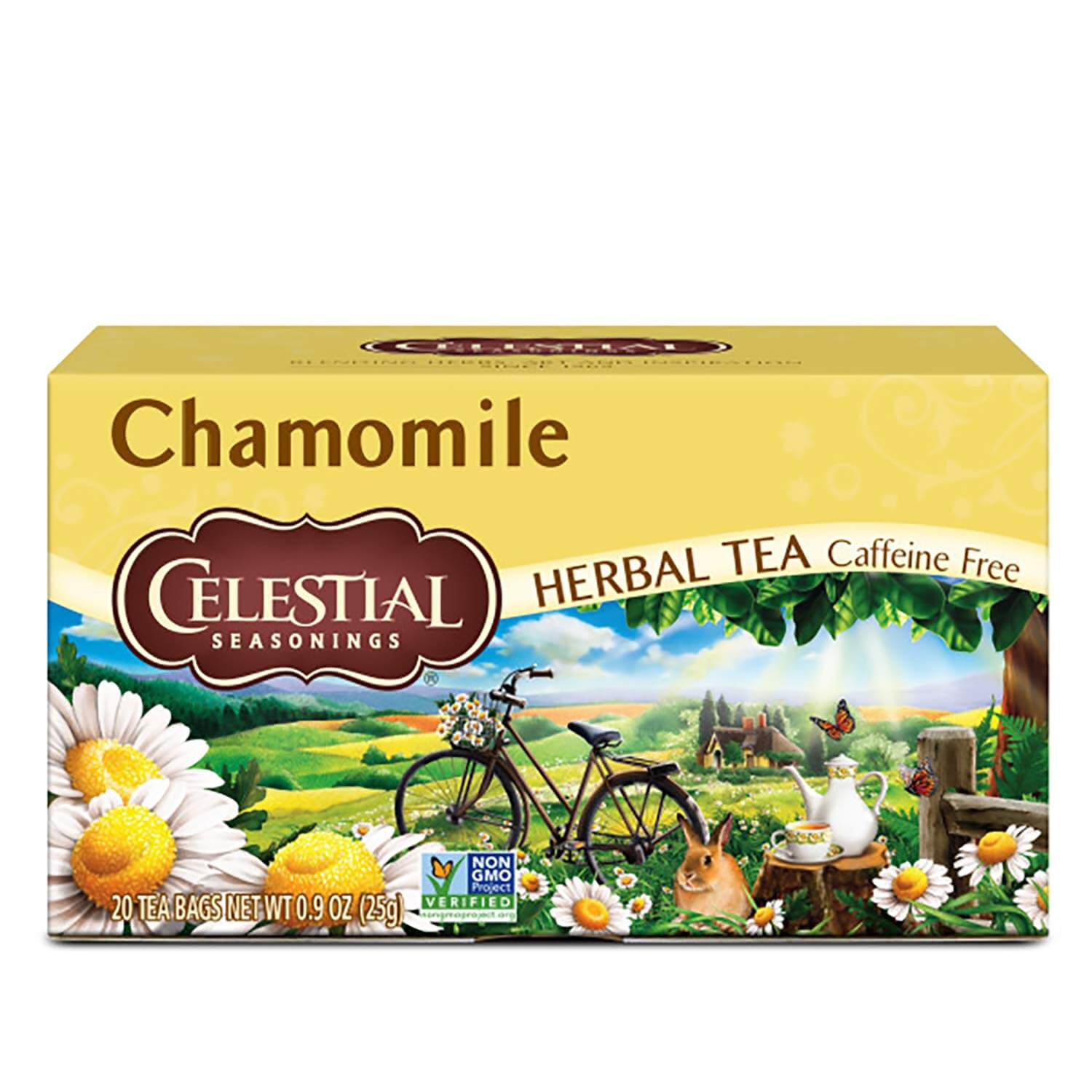
You can also sip on a cup of chamomile to reduce symptoms of anxiety. “In addition to helping promote sleep Chamomile is helpful for calming and relaxing people who suffer from anxiety disorder [as] well as acting as an effective muscle relaxant, which can be very helpful for those who suffer with chronic pain disorders like fibromyalgia,” reports Sleep Lander.
Why is chamomile calming? “For sleep, the key active component of chamomile is the flavonoid apigenin,” sleep expert Jacob Teitelbaum, M.D. explains to Mind Body Green. “This binds to GABA receptors in the brain and has a calming impact on the body—helping to reduce nerves and promote rest.” No wonder it is first on our list.
2. Lavender
The smell of lavender alone can be calming, so you know that lavender tea will be beneficial too. “More commonly used as aromatherapy, lavender is a purple flowering herb that has been used since the Roman empire. Not many people know that they can actually drink lavender as a tea, which can be added to a relaxing nighttime routine,” notes Sleep Foundation.
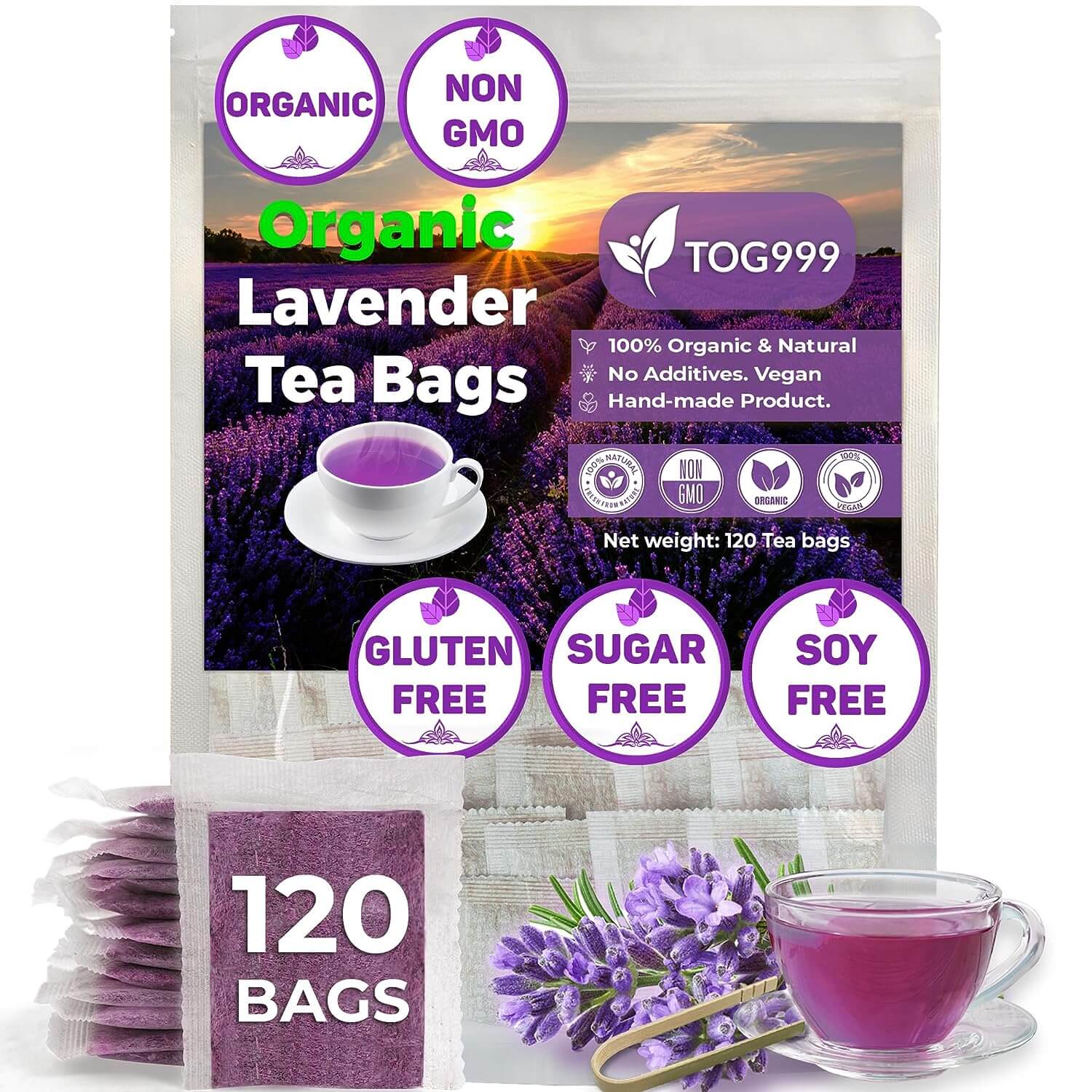
It’s not just a pretty flower! “Lavender’s sleep-inducing properties include interacting with the neurotransmitter GABA (gamma-aminobutyric acid) to help quiet your brain and get you to sleep easier. It also works as an anxiolytic, or as an anxiety reliever and mild sedative. Aromatherapy using lavender oil before bed may increase time spent in deep, slow-wave sleep— which is what you want! Slow-wave sleep is where the most rejuvenating sleep of the night takes place,” reports Sleep Doctor.
How is it made? “Lavender tea is made by brewing the buds of the lavender flower in water, creating a vibrant purple beverage with a distinct flavor and aroma,” states Healthline.
To make a delicious cup before bedtime, “brew a cup about two hours before bed, and take time to smell the scent of lavender from the tea,” explains Insider.
3. Valerian Root
This next sleep tea, Valerian Root, has an earthy or woodsy taste that may not be preferred by everyone. Sleep Foundation recommends that “adding a dash of honey or maple syrup to your tea may help improve the taste.” They also noted that “research demonstrates that a valerian root extract can improve sleep without the side effects of traditional sleep aids.”
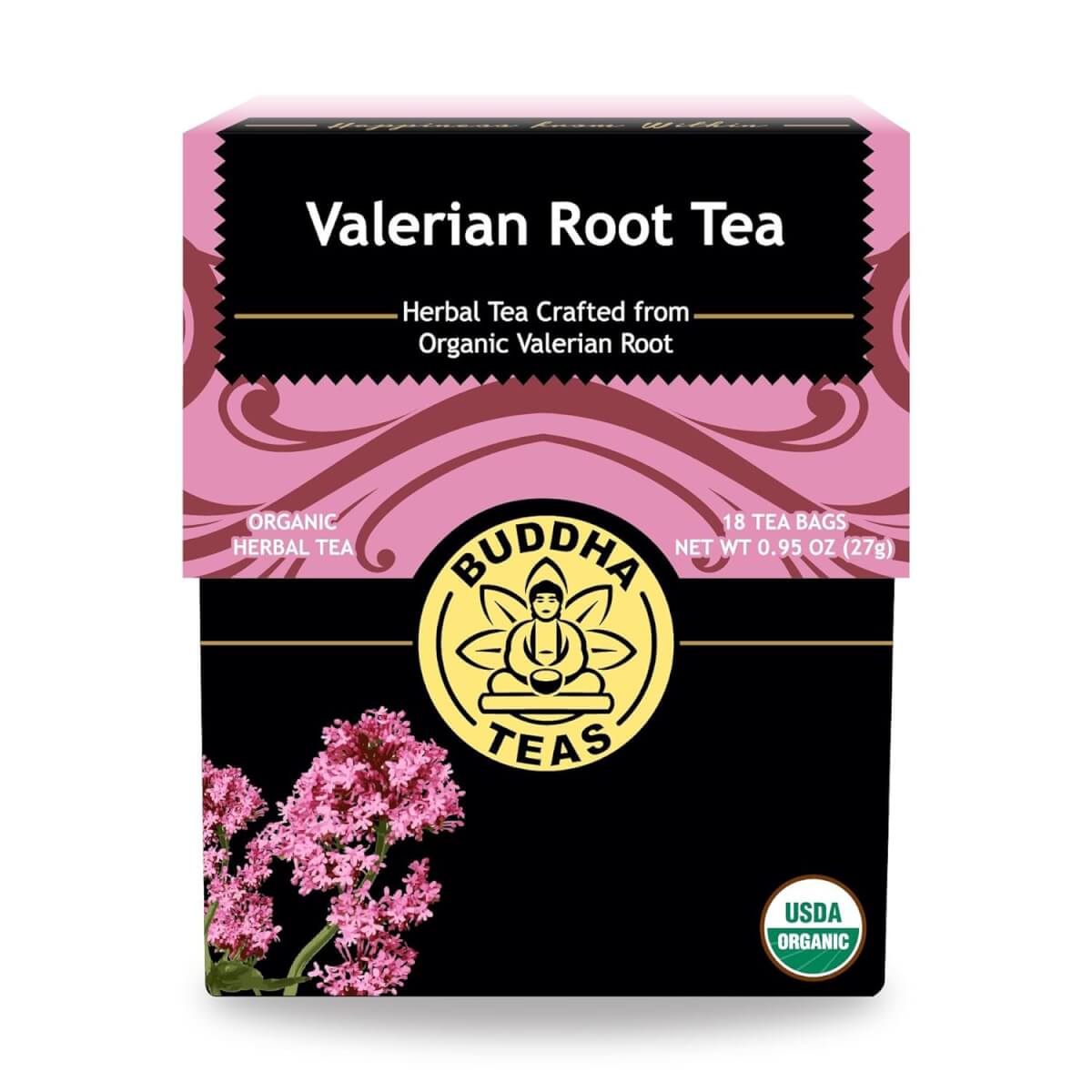
Aside from just improving your sleep, Valerian Root also helps with stress, anxiety, menopause, menstrual problems, restless legs syndrome, and Parkinson’s disease, as reported by Sleep Lander. They explain that “valerian tea should be well steeped and taken without milk. For the best results, it’s advised that you drink it about 20 minutes before you’d ideally like to go to sleep. Soak 2 to 3 grams of dried herbal valerian root in 1 cup of hot water for 10 to 15 minutes.”
Do consult with your doctor before trying this tea, though. “Valerian root helps you fall asleep thanks to two naturally occurring sedatives in the herb, called valepotriates and sesquiterpenes. However, it’s important not to consume valerian root tea with certain medications or supplements, such as benzodiazepines like Xanax or barbiturates like morphine, as they may create adverse effects when taken together,” emphasizes Sleep Doctor.
4. Lemon Balm
You may already know that adding lemon to hot or cold water can help with digestion and weight loss, but can it help with sleep too? It can if it is lemon balm tea which is “made from the flowering herb, not the citrus fruit,” states Mind Body Green. This tea “makes for a delicious and sleep-promoting tea at bedtime.”
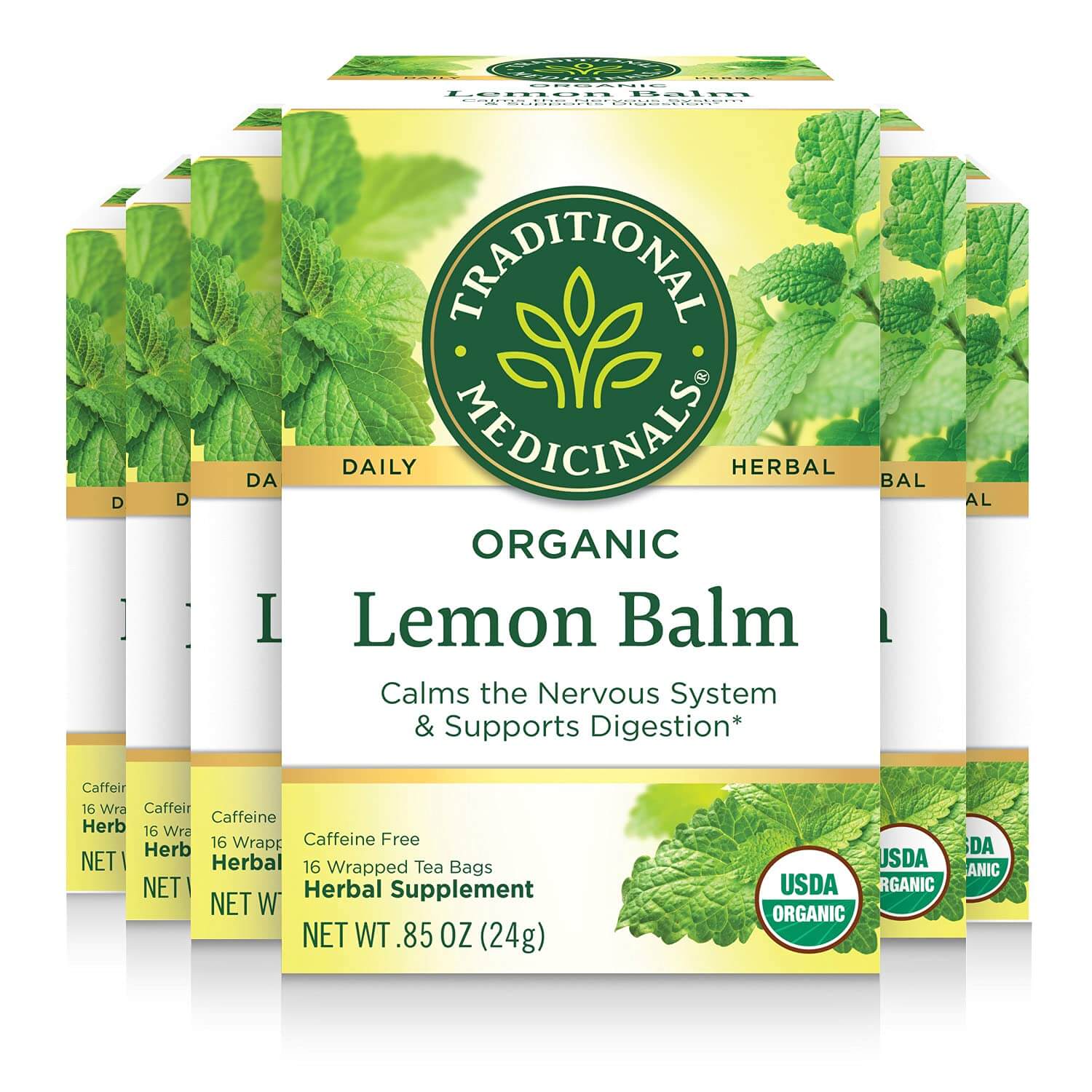
Sleep Advisor says that lemon balm tea is “often combined with chamomile and valerian for an ultimate cup of snooze.” When should you drink it? “To use lemon balm for sleep, drink a cup of lemon balm tea two hours before bed. You can drink it warm or cold,” explains Insider.
This is definitely a tea that is worth trying! “Hailing from the mint family, this fresh bad boy is often used in aromatherapy,” reports Greatest. “But research from 2011 suggests that lemon balm extract can also help reduce stress and anxiety and improve insomnia when ingested (like when you drink tea!!). Research from 2018 also found that lemon balm supplementation can help reduce depression, anxiety, stress, and sleep disturbances in people with chronic chest pain. Easy-peasy, lemon balm squeezy.”
5. Passionflower
Looking for a sweeter-tasting tea to sip before you drift off to dreamland? Give passionflower tea a try! “Passionflower extract is considered by some to be such a powerful sleep aid that it is actually used as one of the major ingredients in many of the over the counter sleep aids that are sold in Europe,” reports Sleep Lander. They recommend for “a restful night’s sleep, try sipping a cup of passionflower tea or brew one tbsp. dried passionflower in 1 cup of hot water right before bed.”
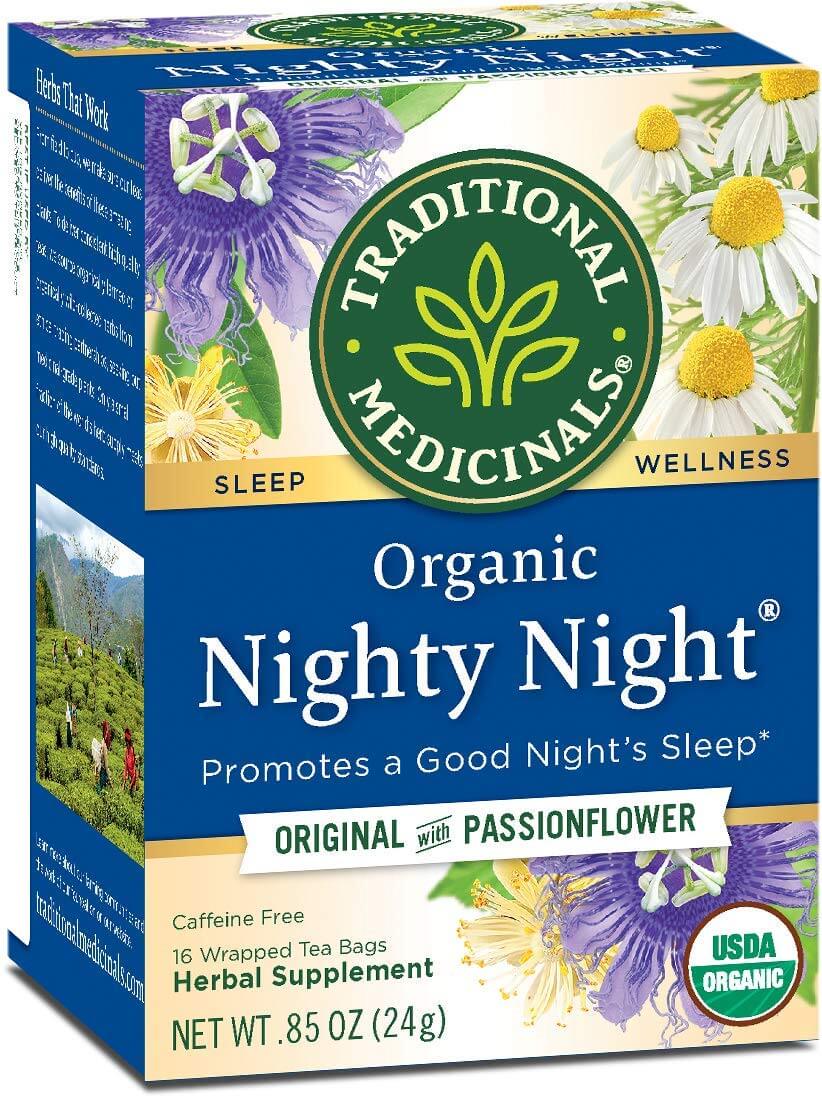
Sleep Doctor explains that “passionflower can help reduce anxiety in your brain, thanks to its flavonoids binding to your brain’s benzodiazepine receptors. Some research has found that when combined with other herbal supplements like valerian, passionflower is just as effective in short-term insomnia relief as traditional sleep aids. However, this study used capsules rather than tea— the tea is less concentrated than the capsules, but it should still have a positive effect on your sleep.”
Not only will you fall asleep more easily, but passionflower tea has also ben shown to boost mood, too. “It may also increase the happy hormone, serotonin,” adds Mind Body Green, “which induces sleep by acting as a precursor to the onset of melatonin, aka the sleep hormone.” So, the next time you need something sweet to help you have sweet dreams, brew some passionflower tea.
6. Magnolia Bark
Does your mind race in a million directions while you try to fall asleep? Magnolia bark tea may be your solution. “Derived from the houpo magnolia tree, magnolia bark contains honokiol, a compound that binds GABA receptors in the brain,” which Mind Body Green says, “helps to reduce the time it takes you to fall asleep.”
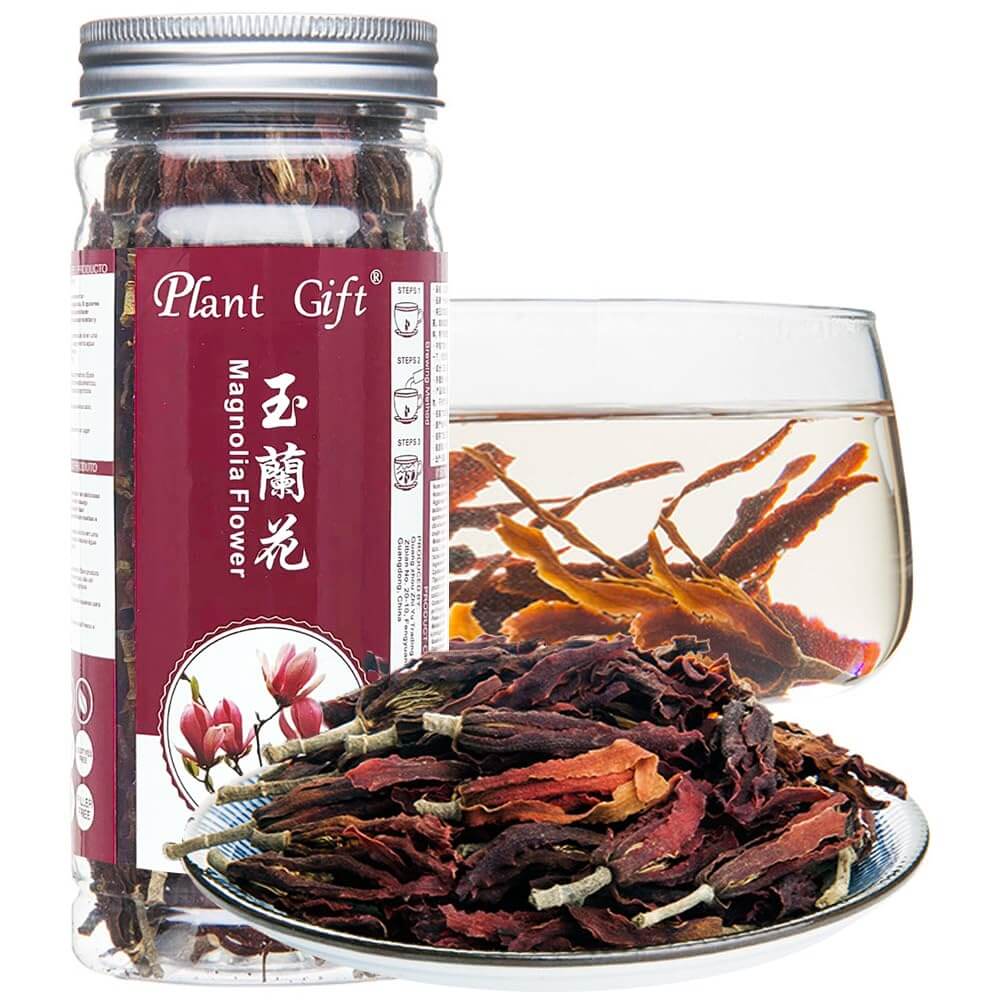
Historically, magnolia bark has been used to help people fall asleep. “Made from the dried bark, buds, and stems of the magnolia plant, magnolia tea is often used as a natural sleep aid in many forms of traditional medicine,” reports Healthline. “Magnolia bark (Houpu) is a traditional Chinese herb that has been used to aid sleep for thousands of years,” notes Sleep Foundation.
What does magnolia bark tea taste like? Sleep Lander explains that it tastes “gently of menthol and camphor, lightly invigorating without caffeine.” If you don’t prefer the taste by itself, you could always add honey or another sweetener. Sleep Foundation also notes that “while you can drink magnolia bark as a tea, it’s also available as a supplement. Since the tea is made from the bark of the magnolia tree, it may have an unpleasant taste to some. If you dislike the taste, capsulated magnolia bark might be a better option for you.”
7. Peppermint
Last on our list of the top seven best sleep teas according to experts is peppermint tea. This familiar scented tea “is naturally caffeine-free, which can help you wind down for a good night’s sleep without keeping you awake,” according to the Sleep Doctor.
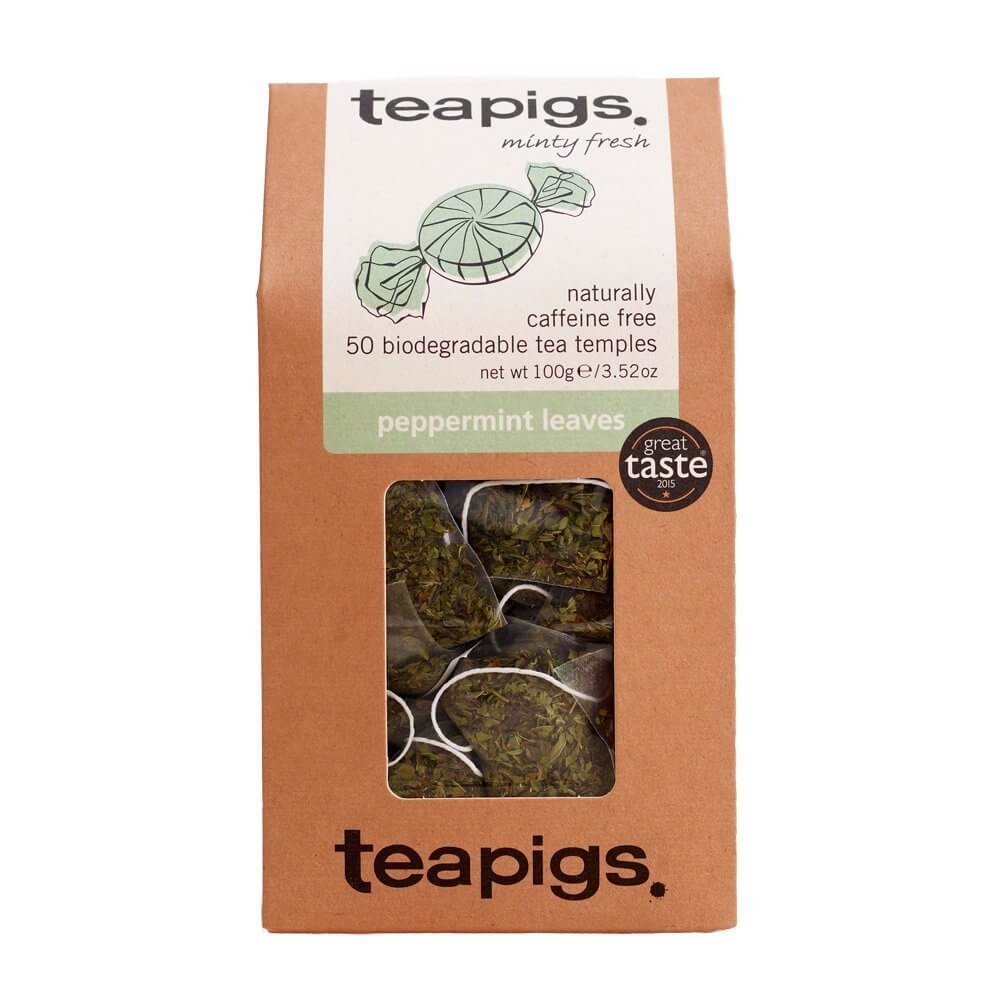
If you need relief during the day also, peppermint can help then too. “Peppermint does double duty as a stimulant or a relaxation aid, depending mostly on your intention. Because it helps with digestion and headaches, you may want to reach for peppermint when you’ve got a tummy ache or a migraine,” reports Sleep Advisor.
Having trouble sleeping because of a stuffy nose? Mind Body Green reminds us that peppermint can “open up the respiratory tract.” So, no matter the reason you’re not sleeping well, try one of the top seven best teas for sleep.
Check out our list of the best peppermint teas here.
Let us know in the comments which works best for you. Have other recommendations for sleep teas? Please share those too!
You might also be interested in:
Sources:
- Sleep Lander
- Sleep Foundation
- Healthline
- Sleep Advisor
- Insider
- Greatest
- Sleep Doctor
- Mind Body Green
Note: This article was not paid for nor sponsored. StudyFinds is not connected to nor partnered with any of the brands mentioned and receives no compensation for its recommendations. This article may contain affiliate links in which we receive a commission if you make a purchase.
